12 best alternatives to Facebook Marketplace in 2023
![[object Object]](http://images.ctfassets.net/ly25iagmtxce/fNcDV9jd96OvMGudkxPQM/8be1a1fa71a55c01f1335e3e47b5c782/timothy-hales-bennett-OwvRB-M3GwE-unsplash.jpg)
Photo by Timothy Hales Bennett on Unsplash
Facebook Marketplace is a very popular online platform for buying and selling a wide range of items for free. However, there are alternatives to Facebook Marketplace that online professionals can equally expand their reach and meet needs beyond Facebook. Some of these alternatives are niche-based, while others are generic. Each platform has a unique design, operating principle, market, and pros and cons.
In this article, Workee experts explore some of the 12 best alternatives to Facebook Marketplace based on purpose and target audience, entry requirements, scope and features, geographical reach, and why they are great Facebook alternatives.
List of 12 best alternatives to the Facebook Marketplace
In no particular order, here are 15 great alternatives to the Facebook Marketplace.
1. Workee Space

Workee Space vs. Facebook Marketplace
Purpose and target audience
Workee Space: Workee Space, released recently, is a thriving online marketplace where independent professionals can connect, share resources, sell their services, and potentially find new clients.
Facebook Marketplace: Primarily designed for general users to buy and sell items in their local community. It's not limited to professionals, so anyone can list anything from used furniture to vehicles.
Entry requirements
Workee Space: Essentially open to anyone with a Workee account. Requires users to publish and run a completed Workee website, connect payments, and update schedules, making the platform more curated and professional.
Facebook Marketplace: Essentially open to anyone with a Facebook account.
Scope and features
Workee Space: Goes beyond mere listings by offering a place for professionals to connect and share resources. The platform is an additional feature of an all-in-one business management platform that offers various features like website creation and customization, booking and scheduling, invoicing and tax management, and integrations with other platforms like Stripe and PayPal.
Facebook Marketplace: This is more of a listing platform where users can post items for sale, respond to inquiries, and finalize transactions.
Geographical reach
Workee Space: Since it's designed for online independent professionals, it likely has a broader geographical reach, enabling connections across cities or countries.
Facebook Marketplace: Offers local listings primarily, although expanding the search radius is possible.
Is Workee Space a good Facebook Marketplace alternative?
Workee Space can be considered an alternative to Facebook Marketplace but with a clear distinction. While both platforms facilitate connections and transactions, Workee Space is more niche, focusing solely on online independent professionals. It's more of a professional network and marketplace rolled into one. This specialization can make it more appealing to professionals looking to build relationships, share resources, and expand their client base in a more curated environment than the vast, general landscape of Facebook Marketplace. If someone is an online professional seeking a space tailored to their needs, Workee Space would be a valuable alternative to Facebook Marketplace.
2. Mercari
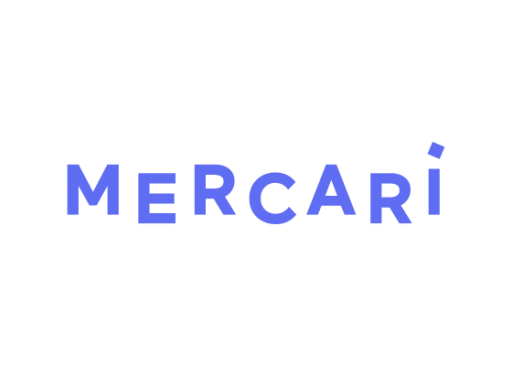
Mercari vs. Facebook Marketplace
Purpose and target audience
Mercari: Mercari is a dedicated online marketplace for individual sellers and buyers. It targets everyday people looking to declutter their homes, resell items, or find unique purchases.
Facebook Marketplace: A feature of Facebook, Marketplace aims to connect local sellers and buyers within the vast Facebook community. It's ideal for individuals and local businesses looking for a quick and convenient way to trade items.
Entry requirements
Mercari: Users need to create an account on Mercari to list or purchase items. While sellers are not required to be professionals, they must adhere to the platform's guidelines.
Facebook Marketplace: An active Facebook profile is required. Listings are tied to individual profiles, adding a layer of transparency and intertwining personal and commercial activities.
Scope and features
Mercari: Offers a range of features like user ratings, integrated shipping options, and in-app messaging. Its focus is solely on the buying and selling experience. Note that you're required to pay a 10% commission on each sale you make. However, listing items is free.
Facebook Marketplace: Provides a localized shopping experience with filters, categories, and direct messaging. Its integration with the broader Facebook ecosystem can be advantageous for social proof but might also be distracting for users.
Geographical reach
Mercari: Originally from Japan, Mercari has expanded its presence, especially in the U.S. However, its reach is still more limited compared to global platforms.
Facebook Marketplace: Being a part of Facebook, its geographical reach is extensive, covering most parts of the world.
Is Mercari a good Facebook Marketplace alternative?
Although their core purposes and user experiences differ, Mercari is a dedicated marketplace for a streamlined buy-and-sell experience. Its features and target audience lean towards individual sellers and buyers.
3. Bonanza
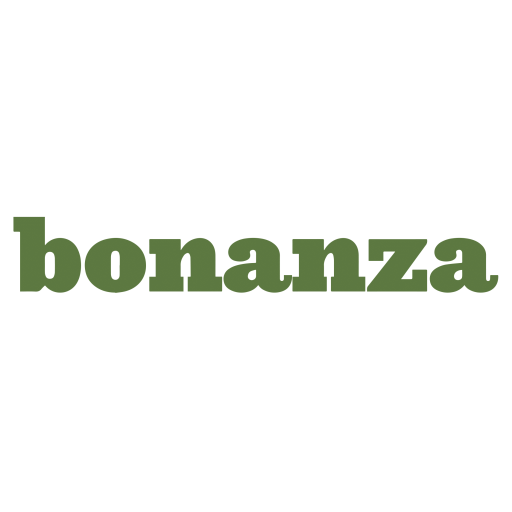
Bonanza vs. Facebook Marketplace
Purpose and target audience
Bonanza: Positioned as a "seller-centric" marketplace, Bonanza is tailored for entrepreneurs, online retailers, and SMEs who want a platform focused on e-commerce. It appeals to those seeking a more curated buying and selling experience without the noise of unrelated social activities.
Facebook Marketplace: A feature within the broader Facebook ecosystem, Marketplace is geared towards local communities. It's suitable for individuals and local businesses looking to trade items nearby.
Entry requirements
Bonanza: To sell on Bonanza, users must set up a booth, essentially their online store. There are no listing fees, and while it encourages professional sellers, individuals can also list their items.
Facebook Marketplace: Sellers need an active Facebook profile. Integrating listings with personal profiles provides a sense of transparency and melds personal and commercial interactions.
Scope and features
Bonanza: The platform offers an array of e-commerce features like booth statistics, website customization, and integrations with other platforms like Shopify and WooCommerce. It emphasizes a refined selling experience with tools tailored for online commerce.
Facebook Marketplace: Offers features like localized listings, direct messaging, and item categorization. Its strength lies in its integration with the broader Facebook community, which can also distract from pure commerce interactions.
Geographical reach
Bonanza: Predominantly known in the U.S., Bonanza is gradually expanding its global footprint. However, it may not be as widespread as some global marketplaces.
Facebook Marketplace: Given that it's a feature of Facebook, its reach is vast, encompassing a large portion of the global population.
Is Bonanza a good Facebook Marketplace alternative?
Although Bonanza and Facebook Marketplace cater to different market segments, with its e-commerce-centric approach, Bonanza is more suited for dedicated online sellers looking for a platform that emphasizes the nuances of online commerce.
4. Craigslist
Craigslist is a centralized network of online communities that offers various sections for classified advertisements and forums on topics like jobs, housing, personals, for sale, items wanted, services, community, gigs, résumés, and discussion forums.
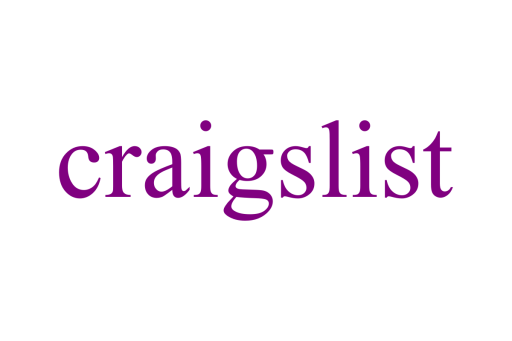
Craigslist vs. Facebook Marketplace
Purpose and target audience
Craigslist: Craigslist's primary purpose is as a classified advertisements website with sections devoted to jobs, housing, for sale items, services, community service, gigs, résumés, and discussion forums. It targets a broad audience looking for almost anything, from housing rentals and job postings to selling/buying items locally.
Facebook Marketplace: Facebook Marketplace is an online marketplace feature within the Facebook platform where users can buy and sell items to others in their local community. The target audience is the vast user base of Facebook who are interested in local buying and selling.
Entry requirements
Craigslist: Anyone can post an advertisement on Craigslist, although some sections might require a verification process. It is mostly free, but specific posting categories in certain cities have associated fees.
Facebook Marketplace: To access the Marketplace, you need a Facebook account. Selling is generally limited to individuals, but there are provisions for businesses to list products as well. Facebook might have specific community guidelines and standards for listings.
Scope and features
Craigslist: The minimalistic platform focuses on the listings without emphasizing social interactions. Features include posting ads with images, search functionality, and categorized listings.
Facebook Marketplace: Being integrated with Facebook, the Marketplace has a more social element. Buyers can view sellers' profiles, and there's an in-built messenger for communication. It has search functionality, product categorization, and the ability to save favorite items.
Geographical reach
Craigslist: It started in San Francisco but has expanded globally. There are localized versions of Craigslist for cities and regions across the world.
Facebook Marketplace: The feature is available to users in multiple countries worldwide. The primary focus is local transactions, so listings are typically shown from your surrounding area.
Is Craigslist a good Facebook Marketplace alternative?
Facebook Marketplace and Craigslist provide local classifieds with different approaches to suit their user bases. While Craigslist remains a more traditional classified ad platform with a minimalistic design, it offers a vast range of categories and a broad geographical reach. However, in the era of social commerce, the absence of a built-in social component can be seen as a shortcoming.
5. Newegg
Newegg is a specialized e-commerce platform tailored for tech enthusiasts and those searching for electronics and computer hardware. It provides a more structured and professional selling and buying experience than Facebook Marketplace.
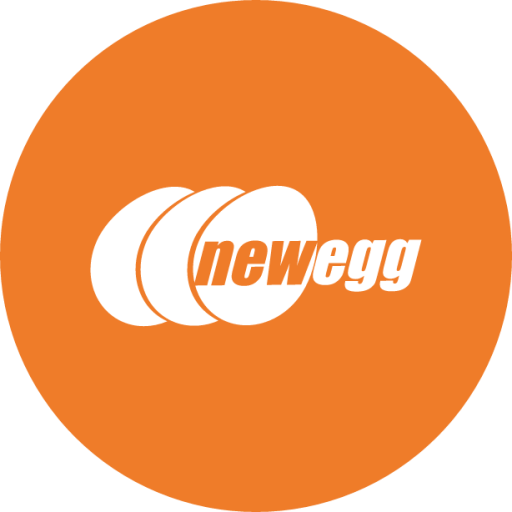
Newegg vs. Facebook Marketplace
Purpose and target audience
Newegg: Newegg is primarily an e-commerce platform focusing on electronics, computer hardware, and tech-related products. Its target audience is tech enthusiasts, gamers, I.T. professionals, and individuals looking for electronics and tech gear.
Facebook Marketplace: Facebook Marketplace is a general platform within the Facebook app where individuals can list, buy, and sell items in various categories, from clothing to real estate. Its vast audience caters to Facebook's user base, including individuals looking for a diverse range of new and used products.
Entry requirements
Newegg: Vendors wishing to sell on Newegg need to apply, undergo a vetting process, and agree to the platform's terms and conditions. There might be associated costs, depending on the seller's model chosen.
Facebook Marketplace: Any Facebook user can list items for sale on the Marketplace. There are guidelines on prohibited items, but generally, the entry barrier is low, requiring only a Facebook account.
Scope and features
Newegg: Offers detailed product pages with user reviews, specifications, and Q&As. Features a professional checkout process, including multiple payment and shipping options.Provides customer service, return policies, and warranty options.
Facebook Marketplace: Simple listing process with options to add photos and descriptions. Direct messaging system for buyers and sellers. Features local listings but allows for shipping options for broader reach.
Geographical reach
Newegg: Initially started in the U.S. but has since expanded internationally to several countries, offering tailored shopping experiences based on region.
Facebook Marketplace: Available to Facebook users worldwide, with listings typically showing to those in your local area, but with options to expand the search radius. The shipping option, when used, can broaden the selling scope.
Is Newegg a good Facebook Marketplace alternative?
Yes, Newegg can be a good alternative to the Facebook Marketplace. While Newegg caters to a niche market, Facebook Marketplace caters to the general public, making them different in scope and audience.
6. OfferUp
OfferUp vs. Facebook Marketplace
Purpose and target audience
OfferUp: OfferUp is a mobile-first marketplace designed for local buying and selling of various items, from electronics to furniture. Its target audience is individuals looking for a platform dedicated to local trade, but it has expanded to include shipping options for a wider audience.
Facebook Marketplace: This is a general platform within the Facebook app where users can list, buy, and sell items across multiple categories. Its vast audience stems from Facebook's extensive user base, encompassing those seeking a wide range of new and used products.
Entry requirements
OfferUp: To list items on OfferUp, users need to create a free account. There are guidelines and prohibited items, and users can earn a reputation through ratings and reviews.
Facebook Marketplace: One simply needs a Facebook account to use the Marketplace. There are guidelines on what can and cannot be listed, but the entry barrier is generally minimal.
Scope and features
OfferUp: User profiles with ratings and transaction history. In-app messaging system for direct communication between buyers and sellers. Secure payment options when using the shipping feature. "Verified" status for users who provide additional identification.
Facebook Marketplace: Ability to list items with photos and descriptions quickly. Direct messaging system integrated with Facebook Messenger. Option to list services, rentals, job offers, and goods. Integration with Facebook user profiles, although there is no distinct rating system for buying/selling activities.
Geographical reach
OfferUp: Predominantly focused on the U.S. market, emphasizing local transactions within communities.
Facebook Marketplace: Global reach due to the widespread use of Facebook. Listings are typically local, but users can adjust the search radius, and some sellers offer shipping for broader availability.
Is OfferUp a good Facebook Marketplace alternative?
OfferUp aims to provide platforms for peer-to-peer transactions. While OfferUp is mobile-centric with a strong focus on local trading (though with shipping options), Facebook Marketplace integrates seamlessly with the larger Facebook ecosystem, offering a more general platform for a broad audience.
7. Poshmark

Poshmark vs. Facebook Marketplace
Purpose and target audience
Poshmark: Poshmark is a specialized online marketplace focused on fashion, including clothing, shoes, and accessories. Its target audience is fashion enthusiasts, people looking for unique or second-hand fashion items, and those wishing to resell their fashion collections.
Facebook Marketplace: This is a broad platform within the Facebook app where users can list, buy, and sell items across various categories. Given the nature of Facebook, its target audience is vast, encompassing a wide range of users interested in new and used goods across multiple sectors.
Entry requirements
Poshmark: To sell on Poshmark, users need to create an account. There's a fee structure in place where Poshmark takes a commission on sales. Users must also adhere to the platform's guidelines, primarily centering around the authenticity and quality of items.
Facebook Marketplace: Anyone with a Facebook account can list on the Marketplace, provided they comply with Facebook’s commerce policies. The process is free, with no commissions or fees imposed by Facebook.
Scope and features
Poshmark: Themed "Posh Parties" where sellers can list specific items during events. A "Posh Ambassador" program for distinguished sellers. In-app messaging for direct communication. Secure payment system. User ratings and transaction history for increased trustworthiness.
Facebook Marketplace: Quick listing of items with photos and descriptions. Messaging integrated with Facebook Messenger. Broad categories, from electronics to rentals and services. Integration with Facebook user profiles without a distinct rating system for buying/selling.
Geographical reach
Poshmark: Originally focused on the U.S., Poshmark has expanded to Canada and Australia. Its model is primarily country-specific, meaning users typically buy and sell within their country.
Facebook Marketplace: With Facebook's global user base, the Marketplace has an extensive reach. However, listings are usually local, but search radius adjustments and some shipping options can widen the scope.
Is Poshmark a good Facebook Marketplace alternative?
Yes, Poshmark is a good Facebook Marketplace alternative. Poshmark serves as platform for buying and selling, but their areas of specialization differ. Poshmark provides a niche platform for fashion enthusiasts, with added features to enhance the buying and selling experience in the fashion realm.
8. eBay
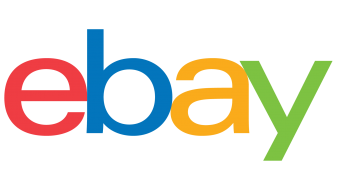
eBay vs. Facebook Marketplace
Purpose and target audience
eBay: eBay is a global online auction and shopping website where people and businesses buy and sell a broad range of goods and services. Its target audience includes collectors, regular consumers, businesses, and anyone interested in auction-based or fixed-price purchasing.
Facebook Marketplace: A feature within the Facebook app and website, the Marketplace facilitates peer-to-peer buying and selling of items across various categories. Given its integration with the broader Facebook platform, its target audience is vast, accommodating the general Facebook user base interested in local or shipped purchases.
Entry requirements
eBay: To sell on eBay, users need to create an eBay account and may need to provide additional verification details. Listing items might be subject to fees, and eBay takes a commission on sales. Adherence to eBay's selling policies is mandatory.
Facebook Marketplace: Any individual with a Facebook account can list items on the Marketplace as long as the listings are compliant with Facebook’s commerce policies. Facebook doesn't charge listing fees or commissions on peer-to-peer sales.
Scope and features
eBay: Auction-style listings allowing bidding. "Buy It Now" fixed-price option. Extensive feedback and rating system for sellers and buyers. Seller stores for businesses or frequent sellers. eBay Money Back Guarantee and buyer protection.
Facebook Marketplace: Quick and straightforward item listing with photos and descriptions. Integrated messaging using Facebook Messenger. Broad categories from electronics to rentals. Integration with Facebook profiles, but lacks a distinct, comprehensive rating system like eBay.
Geographical reach
eBay: eBay operates in over 30 countries but allows international buying and selling, making its reach truly global. Users can list items for their country or international shipping depending on preferences and costs.
Facebook Marketplace: Facebook's user base is global, and so is the Marketplace's potential reach. However, listings tend to be more local-centric, with users seeing items near their location by default, although some sellers offer shipping.
Is eBay a good Facebook Marketplace alternative?
Yes, eBay offers platforms for buying and selling, but they operate with different mechanisms and histories. With its auction model, extensive feedback system, and global shipping options, eBay provides a more comprehensive e-commerce experience, especially for unique or collectible items.
9. Etsy

Etsy vs. Facebook Marketplace
Purpose and target audience
Etsy: Etsy is a specialized online marketplace focusing on handmade, vintage, and craft supply items. It attracts artists, crafters, and vintage enthusiasts looking to purchase unique goods or sell their creations.
Facebook Marketplace: A built-in feature of the Facebook platform, Marketplace is designed for peer-to-peer buying and selling across various categories. It appeals to the general Facebook user base looking for local and shipped items, from used goods to brand-new products.
Entry requirements
Etsy: Individuals or businesses must set up a shop to sell on Etsy. Listings on Etsy are subject to fees, and Etsy takes a commission on each sale. Sellers are also expected to adhere to Etsy's policies, especially concerning the items allowed (handmade, vintage, or craft supplies).
Facebook Marketplace: Any individual with a Facebook account can list items for sale on Marketplace, provided the items comply with Facebook's commerce policies. Facebook doesn't charge listing fees or take commissions on peer-to-peer sales.
Scope and features
Etsy: Focuses on unique, artisanal items. Provides tools for shop customization. Incorporates a review and rating system for sellers. Enables sellers to participate in Etsy Ads for increased visibility. Offers payment processing through Etsy Payments.
Facebook Marketplace: Offers a simple listing process with photos and descriptions. Uses integrated messaging through Facebook Messenger for buyer-seller communication. Covers a wide range of categories, from electronics to rentals. Links listings to Facebook profiles but lacks an extensive rating system like Etsy.
Geographical reach
Etsy: While Etsy is based in the U.S., it boasts a global reach. Sellers worldwide can open shops, and buyers can filter items based on location or opt for international shipping.
Facebook Marketplace: Through Facebook's global reach, Marketplace has a more local focus. By default, users see items available near their location. However, some sellers do offer shipping, broadening the potential reach.
Is Etsy a good Facebook Marketplace alternative?
Etsy is a good Facebook Marketplace alternative because it is an online platform for buying and selling. Etsy is tailored for the unique, handcrafted, and vintage sector, offering artists and crafters a dedicated space to showcase their talents and wares.
10. Rakuten
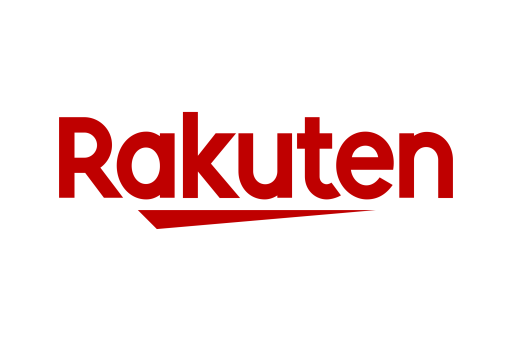
Rakuten vs. Facebook Marketplace
Purpose and target audience
Rakuten: Rakuten is a global online retail marketplace. It's like an online mall where various merchants set up storefronts to sell products. Rakuten's primary target audience includes general consumers looking for a broad range of products and brands.
Facebook Marketplace: Facebook Marketplace's primary audience consists of everyday Facebook users looking to buy or sell items locally or via shipping.
Entry requirements
Rakuten: Merchants wishing to sell on Rakuten must apply and be approved. There are associated fees for selling, and merchants must adhere to Rakuten's terms of service and product listing policies.
Facebook Marketplace: Any Facebook user can list items for sale on the marketplace if those items comply with Facebook's commerce policies. There are no listing fees or commissions for peer-to-peer sales.
Scope and features
Rakuten: Offers a wide variety of products across multiple categories. Provides a loyalty program in the form of "Rakuten Points." Supports merchant promotions and daily deals. Has a structured product review system.
Facebook Marketplace: Enables users to list items with photos and descriptions. Integrates with Facebook Messenger for direct buyer-seller communication. Offers diverse categories, from vehicles to rentals. Connects listings to Facebook profiles, providing some level of seller transparency.
Geographical reach
Rakuten: While originating in Japan, Rakuten has expanded its reach globally, accommodating multiple countries and languages.
Facebook Marketplace: Although Facebook is a global platform, the Marketplace primarily focuses on local transactions. Users are shown items near their location by default, though some sellers offer shipping options.
Is Rakuten a good Facebook Marketplace alternative?
Yes, it is. However, Rakuten operates more like an online mall, hosting various merchants and offering a more structured retail experience.
11. Carousell
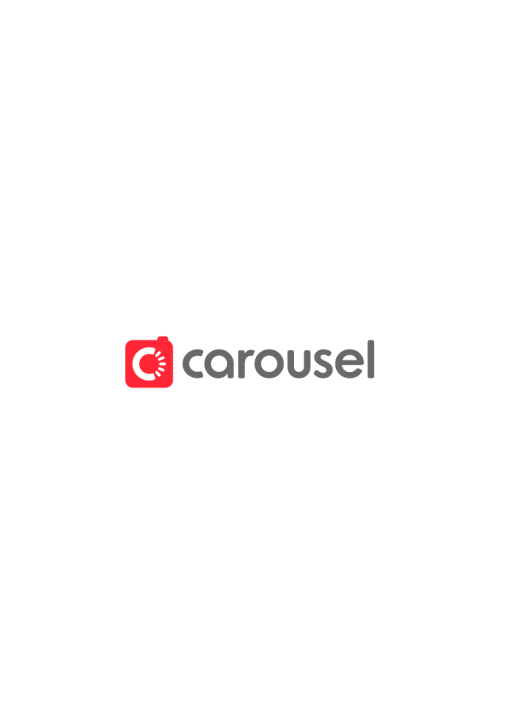
Carousell vs. Facebook Marketplace
Purpose and target audience
Carousell: Carousell is a mobile and online platform designed for buying and selling items, especially second-hand goods. Its target audience comprises individuals looking for an easy way to declutter or find pre-loved items.
Facebook Marketplace: Designed for peer-to-peer buying and selling, Marketplace caters to the general Facebook audience interested in purchasing or selling items within their local community.
Entry requirements
Carousell: Users need to create a Carousell account to list items. Listings are free, but promotional tools like bumping listings can incur fees.
Facebook Marketplace: Listings are available to any user as long as the items adhere to Facebook's commerce policies. There are no listing fees or commissions for peer-to-peer transactions.
Scope and features
Carousell: Focuses mainly on second-hand items but allows new items. Has user feedback and ratings system. Offers a chat feature for direct communication between buyers and sellers. Has a "Group" feature where users with similar interests or locations can congregate
Facebook Marketplace: Allows listings across multiple categories, from electronics to home rentals. Integrates with Facebook Messenger for direct buyer-seller communication. Provides a "Save" feature where users can save items they're interested in. Allows users to report suspicious listings or users, contributing to community self-policing.
Geographical reach
Carousell: Initially launched in Singapore, Carousell has expanded its operations to other Southeast Asian countries, including Taiwan and Hong Kong. While it primarily targets the Southeast Asian market, the platform is also available in other regions.
Facebook Marketplace: Given Facebook's global reach, Marketplace is accessible in many countries worldwide. However, its focus is on local transactions within communities. Users see items available near their location by default, but there's also an option for sellers who offer shipping.
Is Carousell a good Facebook Marketplace alternative?
Like Facebook Marketplace, Carousell facilitates peer-to-peer transactions, especially for second-hand items. However, while Carousell was designed to be a marketplace (primarily targeting the Southeast Asian region), Facebook Marketplace is an additional feature of the global Facebook platform.
12. Depop
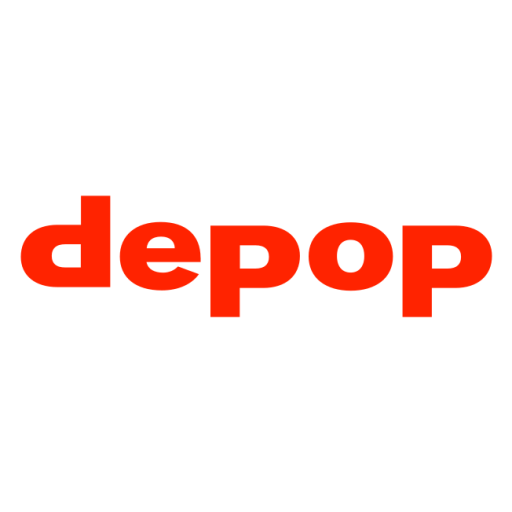
Depop vs. Facebook Marketplace
Purpose and target audience
Depop: Depop is primarily a fashion resale platform, allowing users to buy and sell unique fashion pieces, vintage items, and handmade goods. The platform is popular among Gen Z and millennials interested in sustainable fashion, unique finds, and vintage pieces.
Facebook Marketplace: Facebook Marketplace is a general online marketplace allowing users to buy and sell various items within their local community. The broad audience encompasses anyone with a Facebook account looking to buy or sell items locally. It caters to a diverse age group and varied interests.
Entry requirements
Depop: Users need to create a Depop account, which can be done using an email address or through a Facebook login. Sellers must set up a profile with relevant payment details.
Facebook Marketplace: Users must have an active Facebook account. Facebook might restrict new accounts from accessing Marketplace to prevent scams.
Scope and features
Depop: Provides features tailored for fashion reselling, such as styling photos and creating a brand-like image. Allows users to follow specific sellers and "like" items. Has a built-in payment processing system. Offers in-app messaging for buyer-seller communication.
Facebook Marketplace: Supports various categories from electronics to real estate. Integrates with Facebook Messenger for communication. Does not offer integrated payment processing; transactions are typically arranged between buyer and seller.
Geographical reach
Depop: It started in the U.K. and is popular in Europe, but it also has a significant presence in the U.S. and other parts of the world.
Facebook Marketplace: Available globally wherever Facebook is accessible, but primarily focused on local community transactions.
Is Depop a good Facebook Marketplace alternative?
While both Depop and Facebook Marketplace serve as platforms for buying and selling, they cater to different niches and audiences. Depop focuses on the fashion-conscious youth demographic, offering a curated space for sustainable and unique fashion finds.
Conclusion
In the vast world of online marketplaces, finding one that resonates well with your specific needs doesn’t have to feel like searching for a needle in a haystack. Workee Space has emerged to change the game. With its tailored approach for online freelance professionals, it's more than just a marketplace. It's a community where professionals can sell their services, connect, share resources, and foster meaningful relationships.
Why settle for the ordinary when you have a platform that understands and nurtures your professional journey? If you're ready to elevate your online presence, make genuine connections, and unlock unparalleled opportunities, sign up on Workee and start selling your services on Workee Space!


